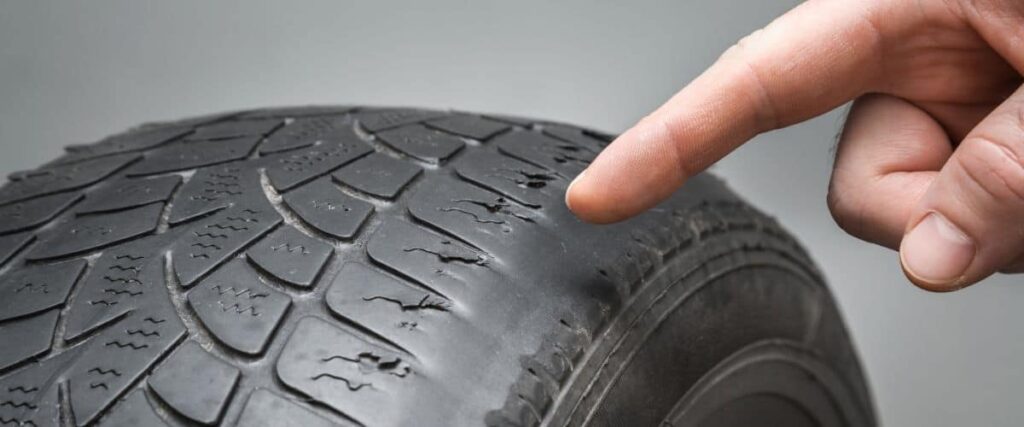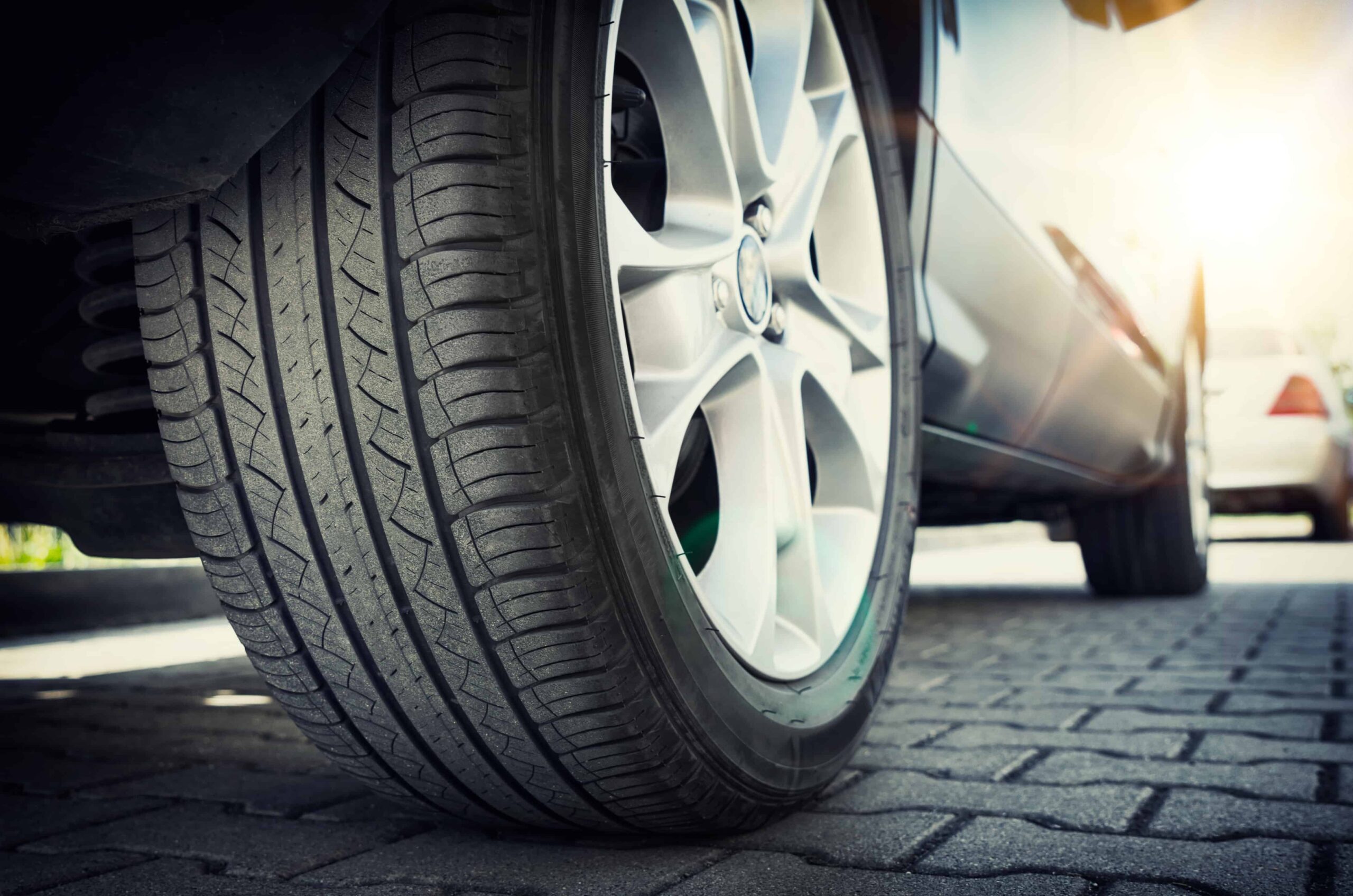You might've noticed on your trips to the local tire shop that there are often several different models for you to choose from. While tires can vary widely in price between sizes and types, the differences between same-size and same-class tires aren't as apparent. What's the difference between, say, a budget $75 tire and a top-of-the-line $230 tire of the same type and brand? In this article, we'll go over just that and how to find the right type of tire for your car.
Durability
Every pair of tires eventually reaches the end of its serviceable life. That's why it's essential to trade in and upgrade your tires every now and then, just like you would for a car trade-in. The most important reason why is the durability of the tire, or how long the tire and its tread last.
You should already know that, eventually, every tire wears down enough that it's no longer safe to drive. However, how quickly this happens can vary significantly between budget tires and brand name tires.
As you might expect, many budget tires will give you fewer miles than similar brand-name tires. However, the most important thing to consider is the mileage rating of the tires you're considering (if they have one at all). However, you may see budget tires without any mileage guarantee at all; in this case, you just have to take whatever you can get.

Handling
A more expensive tire will often handle better, feel less "sluggish," and accelerate and brake more responsively.
With that being said, you should also keep in mind the type of tire you buy. For example, if weather conditions permit it where you live, you can always consider changing to a more responsive tire type to get a different result. This will almost assuredly increase the price, but it will give your car a noticeable performance boost, too.
Let's imagine that you have a set of budget all-season tires, but you want something that handles a bit better. You could upgrade to the ultra-high-performance all-season brand name tires or the touring all-season brand name tires for about the same price. Both tire types will have different effects on the way your car handles.
Similarly, if you have a secondary vehicle that you don't drive often, you might not drive it enough for the drawbacks of a set of budget tires to bother you.
Safety
Unfortunately, it's not always clear who makes which tire, and this is the most dangerous part of buying discount tires. While all of the big, respectable tire companies will do an enormous amount of research and testing on their tire models, some knock-off imports might not.
At the same time, though, you might be able to find some cheap imported tires that do an excellent job (and are a great deal). If you can, the best ways to make sure you get good tires, budget or otherwise, are to:
- Do your research online first - check online reviews to see whether they're positive or negative
- Fet tires with a return window so that you can test them before getting locked into a purchase
- Try and dig up who is the real manufacturer of your tires
Tread
It may be a better investment to buy brand-name tires, even though they put a more significant dent in your wallet. Tread life is just one of several reasons why this is sometimes the case.
Tread life isn’t the only thing you should keep in mind, either, though. Different tire makes and models have different tread designs, and it’s unavoidable that some will perform better than others, especially in different weather conditions.

Performance
The price of a set of tires often dictates how well they perform, at least to an extent. When it comes to performance, price plays a much more significant role in what you get than many of the other considerations on this list.
One of the most important performance-related aspects of a car tire is how much fuel it can save you. A better, more expensive set of car tires can make a noticeable difference in how much fuel your vehicle uses. Just how much is linked to how well your car performs with the tires themselves.
A set of budget all-season tires will get you through the year, but if your car needs to exert more force to accelerate and steer, you'll end up spending noticeably more on fuel over the life of the tire.
Keep an eye out for something called "rolling resistance," which is a measure of how much force your car needs to exert to move the tire. Lower rolling resistance means better acceleration and fuel economy.
While most tires won't give you a guarantee of how much gas you could save with one of these special tires, how much you can save is usually proportionate to how much of an upgrade the tire itself is. In other words, if you've been using bare-bones, bargain tires, you'll probably see a significant upgrade.
Ride Quality
Noise can be another big issue with budget tires, but like tread life, it depends on your car and the way you drive it, too. If you do a lot of city driving or have a big, heavy vehicle, for example, you might not notice much noise at all, even with budget tires.
However, if you have more of a performance-driven vehicle or you do a lot of highway driving, a set of noisy tires might be far more obvious (and annoying) to you. Noise is a little different from the other considerations on this list because it won't necessarily affect the tires' performance otherwise. As such, if you can live with the sound, there's no other downside.
Rolling resistance, which we mentioned above, can be noticeable to some drivers, too. For example, a set of tires with a low rolling resistance will feel like it picks up speed and handles effortlessly. However, a higher rolling resistance will not feel as “smooth.”

Price
If you purchase a budget tire that lasts a minimum of 50,000 kilometres and costs $65, you're not doing half bad. However, if you buy a $130 tire that's rated to wear out after 145,000 kilometres, you're actually saving yourself quite a bit of money.
However, keep in mind that every situation is different, and even the most premium tires might not last 145,000 kilometres if you wear them hard. If those tires only last you 60,000 kilometres, in the end, you might be better off purchasing the budget tire.
Why Tire Manufacturer Matters
You don't always get what you pay for when it comes to tires - just like with used cars and new cars. However, while there are enough tire brands on the market today to make your head spin, a surprising amount of them are made by the same companies.
Many big-name companies, such as Goodyear and Continental, will sell nearly-identical tires at a lower price and slightly lower quality under a different name. For example, Definity tires are manufactured by Cooper, and Sears tires are made by a number of manufacturers, including Goodyear and Hankook.
Finally, keep in mind that just because your tire is from a big-name manufacturer doesn't mean it'll give you a better experience. Every company produces a lemon at some point, and tire companies are no exception.
Are Brand Name Tires Worth the Price?
In the end, choosing between a brand name and a budget tire doesn't necessarily come down to which is cheaper and which is more expensive. After all, depending on what you use your vehicle for, a more expensive tire might save you money over its lifetime. However, it might not save you money either if you choose the wrong tire type, making things even more confusing.
Which One Should You Choose?
When you make your final decision, all we can recommend is to do as much research into your tires as possible. Budget tires aren't for everyone, and neither are brand name tires. The goal is to find a tire that offers you the optimal balance of cost versus performance for your situation. If you can do that, you've succeeded!
